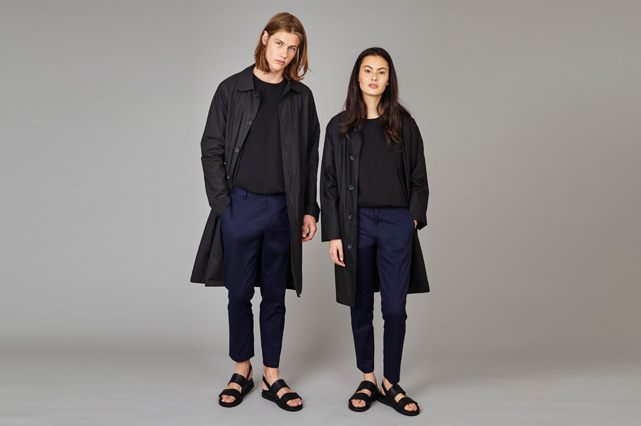Fluid Shift
Gender Neutral Products and Marketing
Sitting in my apartment with a new Boy Smells candle, I began to think more about the shift towards gender neutral products. The last 3-5 years have seen a growing popularity in gender neutral products, be it clothing, beauty or candles. As a society, we have come to realize how ridiculous gendered products really are, especially when it comes to the overly stereotypical marketing behind them. I mean seriously, ever since I started borrowing my brother's deodorant in high school, I have barely touched a deodorant geared specifically towards women. Things like scent, which have absolutely no gender, tend to have very specific associations with one sex over another. Take for example body wash, men's body wash always comes in a "tough" color like black or silver or navy with names like "Fiercely Clean," while a trip down the women's aisle will reveal bottles of pink and lilac and glitter. Don't get me wrong, having more masculine body washes in dark colors and feminine ones in pink isn't the real problem, but it does contribute to the larger issue of enforcing gender stereotypes.
And with the youngest of the Millennial generation coming into the workforce, we are proving that we aren't just "whiny" or overly sensitive teenagers, but rather a generation that wants to embrace diversity in all forms rather than stay in the same lane previous generations have.
This is especially prevalent in marketing and advertising industries. We are coming from a place of inclusivity when it comes to gender and race, and the work we do is starting to reflect that more. Erasing (or at the very least, limiting) common stereotypes in advertising is a huge step in making everyone, no matter how they identify, more comfortable when it comes to buying the products they want to buy. It's evident that the androgyny "trend" is more of a cultural shift, one that is here to stay. Acceptance to athleisure and unisex clothing in recent years has helped push the beauty market towards being more inclusive towards both genders as well.
Brands like Boy Smells, Aesop, or The Ordinary create products that have nothing to do with gender, but focus on a lifestyle and quality of ingredients. Even then, these brands and other smart brands alike, focus on the quality of the products rather than looking at gender neutral as a passing trend. And why shouldn't more brands be gender inclusive? Stepping away from societal reasons, from a marketing standpoint there is more money to be made when advertising to 100 percent of the public instead of just 50 percent. But brands have to be careful in their authenticity by not relying on buzz words or creating campaigns solely because it's the "in thing" right now.
Some of the first steps to achieving this authenticity is to recognize that products aren't just about how they are used, but how their fit into a lifestyle, regardless of gender. By focusing on universal traits and passions that all people have, we can step away from labels. Especially since we are living in a different societal landscape, ones where men are embracing roles at home and more women are stepping into leadership positions in the workforce. Which speaking of, negative gender stereotypes don't just apply to women in advertisements. Of course, the dumb blonde or hot girl in beer ads are common, but so are guys looking like idiots in house cleaning ads. I mean come on, personally my boyfriend knows how to vacuum and wash a dish without me showing him what to do. And while all of this doesn't seem like a huge deal, it does contribute to the pedestal placing of dudes when they do something as normal as taking care of their kid (s). It's not some miracle or feat for a father to handle a baby responsibilities; it's not babysitting, it's parenting. Back to my main point, hyper gendered advertisements reinforce preconceived stereotypes that really aren't all that relevant in this day and age.
As Business Live reports, new approaches to gender can fall into 1 of 3 categories; 1) rise of femvertising which empowers female strength, 2) death of "bro marketing," things like hyper macho/tough guy situations, and 3) gender neutralizing marketing which throw out all types of gender associations. Companies and brands alike can help themselves by taking a step back and looking at how they market themselves. Do you perpetuate sexist or harmful stereotypes, or do you focus on the integrity of the product? Becoming more self aware isn't something that happens over night, and that's okay! Major cultural changes take time, especially if it's a genuine a shift. At the end of the day, all we can really ask for is to keep educating and bettering ourselves.





